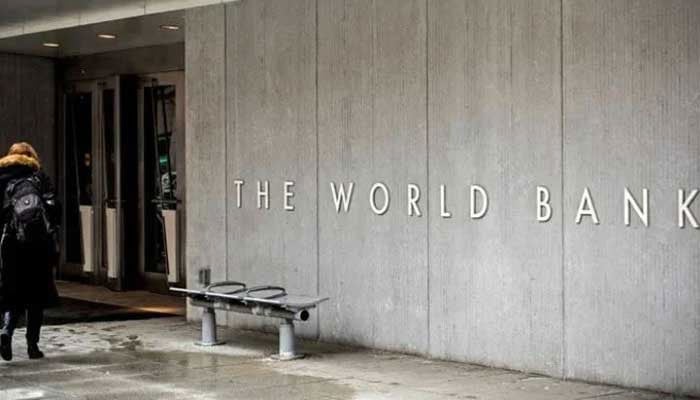WB to help fight smog and secure clean water
Islamabad : World Bank and Pakistan have joined forces to battle smog crisis and boost urban water access.
The agreement came during a meeting between World Bank (WB) country director Najy Benhassine and interior minister Mohsin Naqvi here on Thursday. The two met to discuss joint efforts to combat the worsening smog crisis and improve urban access to clean water and sanitation.
Minister Naqvi said this year, the air quality index reached 271 and said before the situation reached dangerous levels, a comprehensive anti-smog plan should be formulated. Both sides agreed to tackle the smog issue through cooperation and agreed on the establishment of a task force, comprising representatives of the bank and the Capital Development Authority, to develop a comprehensive anti-smog plan for Islamabad.
"We are ready to work with the CDA to design an anti-smog strategy," Benhassine said, noting that a detailed report will be prepared to pinpoint the sources of pollution. The minister emphasised the importance of identifying the true sources of smog through an international quality assessment report.
He informed the visitor that a proposal to install anti-smog machines in Islamabad was under consideration, with the goal of ensuring a clean and healthy environment for both residents and visitors. Mr Naqvi also highlighted the launch of an electric bus service in Islamabad as part of efforts to maintain a cleaner city environment.
Air pollution in the country, particularly in Punjab’s industrial heartland, has become a severe public health concern, with cities like Lahore, Multan and Faisalabad bearing the brunt, as air quality has reached dangerous levels this winter. Lahore, the country's second-largest city with over 14 million population after Karachi, has regained the title of the world’s most polluted city, surpassing New Delhi, and even Islamabad, traditionally known for its cleaner air, has seen a significant rise in pollution levels this year, highlighting the urgent need for action.
Alongside the anti-smog initiative, Minister Naqvi also spotlighted the federal government's efforts to tackle urban water and sanitation issues. He announced plans to establish a new agency, Islamabad Water, to manage the city's growing demands for clean water and effective sanitation.
"Providing clean water and better sanitation services to people are key priorities for the government," he said. According to officials, the World Bank has long been a key partner in Pakistan’s urban development, supporting projects ranging from flood relief to housing initiatives aimed at strengthening resilience in vulnerable communities.
They said the latest collaboration on smog reduction marked a new chapter in the World Bank’s ongoing support to address urban challenges in Pakistan, recognising clean air as vital for sustainable development.
-
 Victor Wembanyama’s Historic First Half Tops Tim Duncan, Sparks Massive NBA Reactions
Victor Wembanyama’s Historic First Half Tops Tim Duncan, Sparks Massive NBA Reactions -
 'Heartbroken' Vanessa Hudgens Mourns Death Of Her 'sweet Girl'
'Heartbroken' Vanessa Hudgens Mourns Death Of Her 'sweet Girl' -
 Sarah Ferguson’s Loyalty To Andrew Gone With ‘free’ Home And Perks
Sarah Ferguson’s Loyalty To Andrew Gone With ‘free’ Home And Perks -
 Diplo Teases Collaboration With BTS On New Album 'ARIRANG'
Diplo Teases Collaboration With BTS On New Album 'ARIRANG' -
 Cure Flu With Theses Two Golden Foods
Cure Flu With Theses Two Golden Foods -
 King Charles Delayed Taking Firm Stance Against Andrew But William Pushed Action
King Charles Delayed Taking Firm Stance Against Andrew But William Pushed Action -
 Toronto Blue Jays Roster Faces Setback With Multiple Injury Concerns
Toronto Blue Jays Roster Faces Setback With Multiple Injury Concerns -
 Demi Lovato Leaves Fans Disappointed With Unexpected Announcement
Demi Lovato Leaves Fans Disappointed With Unexpected Announcement -
 Pacers Vs Knicks Overtime Thriller Ends In Heartbreak For New York
Pacers Vs Knicks Overtime Thriller Ends In Heartbreak For New York -
 Who Owns The Ambassador Bridge? New Report Links Owner Matthew Moroun To Trump’s Threat
Who Owns The Ambassador Bridge? New Report Links Owner Matthew Moroun To Trump’s Threat -
 ICE Detention Center Plan Sparks Controversy In Maryland As Lawmakers Push Back
ICE Detention Center Plan Sparks Controversy In Maryland As Lawmakers Push Back -
 Blood Pressure Medication Recalled After Wrong Tablets Found In Bottles
Blood Pressure Medication Recalled After Wrong Tablets Found In Bottles -
 Why Ariana Grande Wants A 'tiny Mouse' To Play Her In Biopic?
Why Ariana Grande Wants A 'tiny Mouse' To Play Her In Biopic? -
 Wind Chill Returns With Brutal Cold As Polar Vortex Stalls Over Canada
Wind Chill Returns With Brutal Cold As Polar Vortex Stalls Over Canada -
 Princess Beatrice, Eugenie ‘do Not Want To Be Seen In Public’ Because Of Dad
Princess Beatrice, Eugenie ‘do Not Want To Be Seen In Public’ Because Of Dad -
 Costco $20 Rule Explained As Employee Pay Climbs Across North America
Costco $20 Rule Explained As Employee Pay Climbs Across North America




